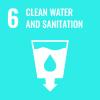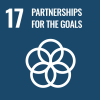Chile – On Saturday, 10 February, when the embers of thousands of houses devoured by the disastrous forest fires in the Valparaíso region of Chile were still smouldering, a group of 30 Venezuelans driven by solidarity arrived in El Olivar, a neighbourhood consumed by the flames on the outskirts of Viña del Mar.
This group, composed mostly migrants, travelled 120 kilometres from Chile's capital, Santiago, to bring donations and assistance to Chileans who had lost everything. They transported food, water, products for newborns, personal hygiene supplies and mobilized professionals such as doctors, social workers, and psychologists to assist those who were most affected.
"We prepared everything ourselves, we poured our hearts into it and here we are to support," said Raúl Semprún, a Venezuelan journalist and founder of Crónicas de Chile (Chronicles of Chile). Crónicas de Chile is one of the many media outlets that Venezuelans have been creating to inform and give visibility to the new migrant communities where they arrive. The operation organized by Raúl was not only a testament of solidarity with the affected in the community but a way to give back to the country that welcomed them to a place they consider a second home.

A Venezuelan nurse caring for the affected population in Valparaíso Region 2. Photo courtesy of Raúl Semprún
"As migrants, in one way or another, we chose Chile as our home, and we do not measure whether we are Venezuelan or if the other is Haitian, Dominican or Chilean. We sincerely believe that we are one and this is our home," explains Raul, "that's why we said we are going to take action to help our brothers and sisters."

A flag hangs in one of the areas affected by fires in Valparaíso Region 7. Photo: IOM Chile/Francisca Salinas
Raúl and his wife, Marielba González, moved to Chile in 2019 from Maracaibo, Venezuela. They arrived by land, in a journey they describe as driven by a "complex and complicated" situation and, even though they have faced difficulties to exercise the profession of journalism in the country due to documentation challenges, Chile received them with open arms.
Optimistic, he adds that "beyond that, it allowed us to do what we love, which is journalism, because that love allows us to show the good side of our migration."
In that corner of Viña del Mar, Raúl, Marielba and more than 30 other Venezuelans delivered the donations they managed to collect from the Venezuelan community living in Santiago. From their vehicles, they delivered boxes of food, and on a blazing hot afternoon, when the temperature was over 30°C (86°F).
"Our main motivation was simply to help from a place of empathy, understanding that these were people who had lived through a complicated moment; some had felt the loss of a family member or of what they had been building," says Marielba. "We decided to put at the disposal of humanity what we had available, which was this community that we knew would immediately mobilize to contribute."
Luna Ramírez, who has been in Chile for seven years, was also among the people who came to Viña del Mar. "Since I arrived, I saw the need among Venezuelans in vulnerable situations," she says, referring to the Red de Apoyo Solidario (Solidarity Support Network), which she founded to deliver humanitarian aid to vulnerable families, regardless of their nationality. Luna and her Network responded to Raúl and the other helpers’ call.

Donation of food and supplies to the affected population in El Olivar, Valparaíso Region 5. Photo: IOM Chile/Francisca Salinas
"We have the possibility and the privilege of helping all communities," Luna said as she arranged rations of ready-to-eat lunches. "Solidarity knows no flags, so we came to serve all the Chilean people, to return the helping hand because we are very grateful for this country," she added.
For Sebastián Jiménez, who oversees the Municipality of Quilpué’s Collection Centre, the support from the migrant communities has been fundamental: "They have been very important, they arrived at the most difficult moment of the emergency."
A Haitian rebuilding hope
The sectors of Pompeya Sur, Pompeya Norte and Población Argentina in Quilpué, Valparaíso, were among those most affected by the fires. Michnayder Pierre, a Haitian migrant, has provided free support to those who lost their homes through his construction company.

Michnayder helping with reconstruction in Poblacion Pompeya Sur, Valparaíso Region 4. Photo: IOM Chile/Felipe Carreño
Motivated by his daughter, Michnayder has dedicated himself to rebuilding houses and giving "the key" to a new home to those who need it, in addition to removing debris to clear the sites.
"That gives me happiness, to help anyone; migrant, Chilean, from anywhere, anyone in need," he says.
Michnayder stresses that, regardless of the person's place of origin, the support he has provided through his construction company is aimed at whoever has been affected by the fires, emphasizing that he already feels Chilean and that is why he seeks to lend a hand. He also points out that the company he formed four years ago with his family has now grown and is made up of Chilean, Haitian and Venezuelan workers.
“Panas” helping “compadres”
The news of the fires dominated media outlets on the last weekend of January. On Saturday morning, José Miguel Montilla, a Venezuelan, woke up with an idea. "Al tiro", as they say in Chile (which loosely translates to “let’s get to it”), he told his partner, Wilmary Mendoza and his group of friends (panas, as they are colloquially called in Venezuela). His friends and his partner responded with a unanimous "yes" when he told them about his idea – to start a solidarity collection campaign to support the people affected by the fires.

José Miguel and Wilmary receive donations in Metropolitan Region 3. Photo: IOM Chile/Francisca Salinas
From that moment on, José Miguel, Arianny, Wilmary, Manuel, Yoselin, Douglas, Isabel, Pedro and María Gracia began to organize themselves with the help of Gonzalo, an Argentinean migrant who provided them with a room, located in downtown Santiago, to collect donations. In less than a week they managed to collect more than three tons of water, food for dogs and cats, clothes, two tons of food and three trucks that transported everything from Santiago to the Monte Sinaí sector, a camp on the edge of a ravine in Viña del Mar.
José Miguel says that since his childhood in Barquisimeto, the town where he was born in Venezuela, his stepfather instilled in him to help anyone in need: "I don't like to see anyone in bad shape, and as long as I can, I will help. Seeing all those children and people who lost everything was too shocking."
"We didn't think we were going to cover so much and that same day there were already people supporting us with logistics, and on Sunday at ten o'clock in the morning they were bringing us the first contribution," recalls José Miguel. Meanwhile, the "Group of Panas" also went in search of help, traveling to remote communities such as La Florida, Macul, Lampa, Pudahuel, Estación Central or Quinta Normal to collect supplies from people who could not travel to the centre of the capital to make their donation.
For Wilmary, these actions respond to the empathy and mutual support between people, regardless of their nationality: "It hit me hard in the heart; I am a mother and to see or think that this fire hurt many children, mothers, fathers, grandparents...We must put our hand on our heart and help all those who need it and will continue to need it," she says, adding, "Many Chilean friends helped me when I arrived in Chile; one hand helps the other."
This story was written by Francisca Salinas Fernández, IOM Chile



